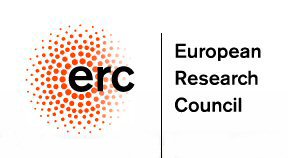We are DATACTIVE, a research project and a research collective exploring the politics of big data broadly defined. We take a critical look at massive data collection, privacy and surveillance | social movements, activism and internet activism | internet infrastructure, cybersecurity and their governance | open data and civic tech networks (and more). The Department of Media Studies at the University of Amsterdam is our nest, and we hang out with the Amsterdam School of Cultural Analysis and the Digital Methods Initiative. We are grateful to the European Research Council (StG-2014_639379 DATACTIVE) for the great opportunity to engage in collective, critical thinking about the relationship between people, data and technologies.
We are researchers, meaning we exercise both curiosity and scientific rigor in exploring social reality and its manifold web manifestations. We like to think of our research as antidisciplinary: we are empowered by our differences and our respective mixed backgrounds in the social sciences and humanities. We muddle up the borders between sociology | science and technology studies | critical security studies |philosophy | political science | development studies | human computer interaction | liberal arts.
Not only are we curious about the world, we also seek to make a difference. We experiment with engaged research an approach to research that, without departing from systematic, evidence-based, social science research, aims to make a difference for groups and individuals beyond the academic community. This approach emerges from our individual engagement over the years with a variety of social movements and non-governmental organizations across the world. It affects, for example, the questions we ask and the ways we engage with groups and individuals. In other words, we take the ethics of research very seriously. We explicitly privilege a grassroots perspective, and our research often takes sides. It is activism by other means.
We seek to engage critically with our role in academia and the public education system. We acknowledge (our) privilege but also listen to our dissatisfaction with hierarchical and authoritarian systems. This is why we try to experiment with horizontal, participatory dynamics in our daily practices. We learn from each other and our differences, and engage in prefigurative politics, subverting here and now the hierarchical relationships and dynamics of academia.
The DATACTIVE project revolves around three main questions that explore the politics of big data: how do citizens resist massive data collection? How do people use big data to foster social change? How do big data and data activism affect the dynamics of transnational civil society? We use the lenses of data activism, an umbrella term that indicate grassroots mobilizations enabled but also constrained by software, which take a critical stance towards massive data collection. They emerge from, for example, the hacker and open software movement, but increasingly involve ordinary users, signaling a change in perspective and attitude towards massive data collection emerging within civil society.
DATACTIVE, however, is also a springboard for a number of related individual projects, touching upon threat modelling as a growing practice in the design and implementation of security, data divides and civic tech communities, grassroots visions of the internet, internet infrastructure and human rights, app-enabled surveillance, data infrastructure and genealogies, and cybersecurity governance.
Here you will find what makes us excited and what keeps us busy. Soon this digital home will be populated with research findings, background readings, data, project-related events and our writings, but for now enjoy reading about our group. For now, please follow us on Twitter: @data_ctive.
And thanks much to our Frederike for designing this website!
stefania |amsterdam, 8 december 2015











